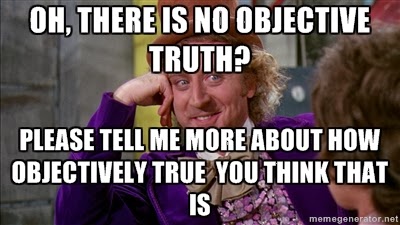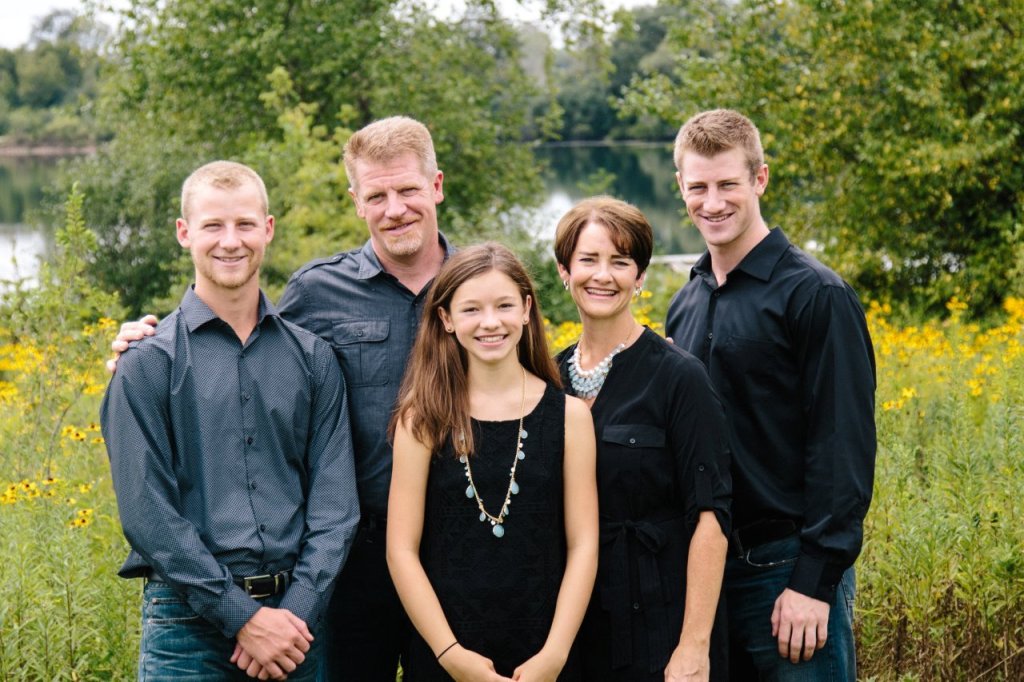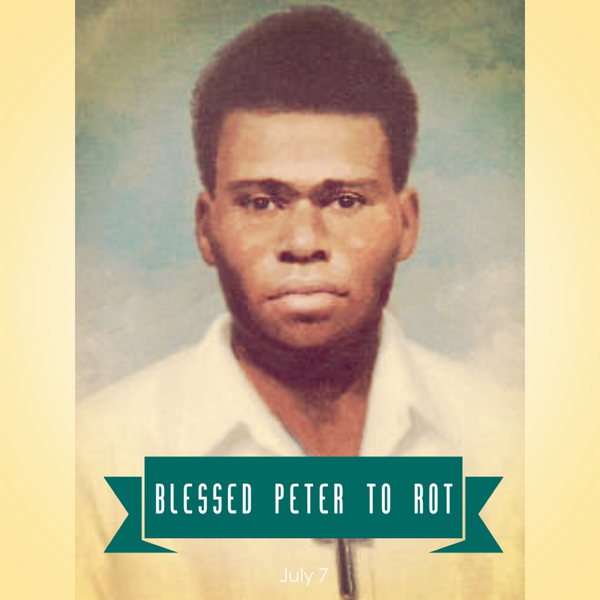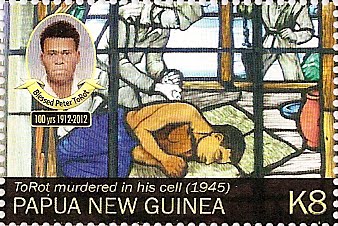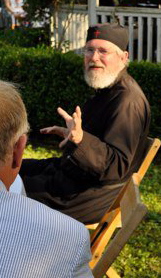
The President went from rainbow coloring the White House to singing Amazing Grace, all in the same day (6/26/15). Wow. Imho, that was quite the spiritual and intellectual contortion. Let’s hope he has an analgesic for his soul and mind. He’s gonna need it.
Unions, “marriages”, not in line with God’s commandments, limit, inhibit, mortally wound? their supply of sanctifying grace. How, in the world, can hope remain?
-by Paul McLachlan (© 1997)
Thomas More Centre Winter School
St Leo’s College, Brisbane, UK
19 July 1997
“I have been asked today to tell you something about the Sacrament of Holy Matrimony. This is obviously because of my vast experience in this area, having been married for 3½ years so far, which by modern standards, appears to be quite a feat!
Marriage is a hot topic these days. Statistics tell us that a sizeable proportion of them are doomed to end in divorce, the majority of couples live together before they marry and about 10% of couples with children decide never to marry at all. And, we are told, Catholics are living together, divorcing and remarrying at about the same rates as the rest of the community.
Magazines, talk shows, pop psychology self-help books, even Catholic Marriage Preparation materials will all tell you everything you could want to know and more about the relationship of marriage, how to sustain it, how to improve it. You can get advice almost anywhere on how to get hitched, how to be enriched and when to ditch.
If you were to judge what marriage is and should be by reading the magazines or watching television or by talking to people on the street, you’d be led to believe that it’s a relationship founded on sexual compatibility and romance. If the sex goes bad or the romance dies, then the couple can walk away from the marriage. How do you work out whether you are sexually compatible. Well, of course, you try before you buy! You make sure you have a sufficient number of sexual partners (the prevailing wisdom is that the appropriate number is about 12) to work out what you like and what you don’t like so that when Mr or Ms Right comes along, you’ll know he or she is the one for you as soon as you sleep with him or her. You live together before you’re married, often before marriage is ever mentioned or contemplated, and often for several years before deciding to marry. You judge the strength of a marriage by how romantic it is: how often does he bring home flowers unexpectedly, how often do you go away for romantic weekends at luxury hotels, how often do you get breakfast in bed, how often does he tell you he loves you?
Marriage is no longer meant to stifle your individuality. Couples rewrite their vows to read something along the lines of: “I take you as an individual. I want to help you reach your full potential. I want to help you reach your own goals and dreams.” Children are a real dilemma. Do you have any at all? How much will they cost? Should we have just one or two? Children come after the mortgage has been paid off, after the trip to Europe, after studies are over and careers are firmly established. Then when they come, they’re treated as little more than accessories. Pay someone else to look after them during the week and complain about your lost freedom on the weekend.
Marriage is seen as a social construct built to protect sexual intercourse, or as a prison with woman chained to the sink and the children. The secularization of marriage so that it is merely a legal contract with attendant rights has led to demands that those rights be extended to those who live as though they were married, even homosexuals. These days, we define ourselves by our “sexuality” and our view of sex is warped by the omnipresent, omnipotent eroticism of the media.
Is it any wonder people are asking why they should get married in the first place? Who’d want to be?!
But, then, that’s what happens when you reduce marriage to just another human relationship, or worse still, an animal relationship. So, I’m not going to say another word about the relationship of marriage. Instead, I’m going to talk about Catholic Marriage, the Sacrament of Holy Matrimony. How is that different from the mere “relationship of marriage”? There are three things about a Catholic marriage that make it far more than just a relationship: it is a Sacrament, it is a Vocation and it is a path to Sanctity. Three things that we so often forget.
Path to sanctity
Vatican II’s Pastoral Constitution on the Church in the Modern World, Gaudium et Spes, repeats again for our modern ears the truth that each and every one of us is called to holiness, called to be a Saint. Saints are not meant to be isolated, rare individuals. You don’t have to be a monk and shave your head, or a contemplative nun to be a Saint. Every single one of us, no matter who we are or what we do is called to be “perfect as our Father in Heaven is perfect”. That is what God expects from us! That is what we are called to strive for throughout our entire lives! So many of us are happy to live each day just getting by when it comes to God and our Faith. We go to Sunday Mass, we pray every once in a while. But “holiness”, “piety”, “sanctity” … no thanks, too hard, too different! Who wants to walk around with a halo on their head?!
There’s a tendency to think that holiness is for the Pope and priests and nuns who give up their lives for God, for people who lived in another age when there were kings and queens and crusades and inquisitions. People who have day jobs and are married with children just don’t have time for all that praying and helping the poor and smiling at everyone. You can’t wear sackcloth to work! Maybe this view has arisen because so many of the Church’s great Saints are priests and monks and nuns. But don’t forget all the married Saints as well. Our Patron Saint, St Thomas More was a married man. He died for his faith and for refusing to renounce allegiance to the Holy Father leaving behind a wife and several children…
Marriage should not be an obstacle to our growth in holiness. (Ed. HARDLY!) The Church teaches very clearly that God gives us marriage as a way of becoming holy.
So, if you’re married, or think that’s what God has planned for you, there’s no excuse! You still have to be a Saint, and use your marriage as the means to that end, not as the excuse if you don’t make it!
Vocation
That leads me to my next point. One of the other things that makes Catholic marriage different is that it is a true Vocation.
Most of us tend to think that only Vocations to the priesthood or religious life are Vocations. That may be because the vast majority of people marry rather than live a life totally devoted to God. It may be because of the notoriety of the supposed shortage of Vocations to the priesthood in the Western World. It may be because the Church has always affirmed that a Vocation to Consecrated Virginity or Celibacy is more exalted than a Vocation to the married state.
Nevertheless, it is very clear that the Church teaches that God has a plan for each of us which He invites us to participate in. He created us, He knows us through and through, and He has a special role for each of us in this life. A select few, He calls to live lives devoted entirely to Him so that we can all have a foretaste of how He wants us all to live in entire union with Him in Heaven. Many others He calls to be married, so that we have someone to help and to help us reach Heaven, and so that we can beget even more Saints.
But, whatever we are called to be, it is clear that God is calling us to some particular state in life. Each of us must pray hard to discern what our Vocation in life is. And once we have discerned it, we must embrace it wholeheartedly.
OK, now how much more dignified does marriage seem already: it’s not just something you fall into: God calls you to be married, He wants you to be married, and He wants you to use your marriage as the way you become a Saint!
But hold on, I’ve left the big guns for last…
Sacrament
The most important thing about Catholic marriage, the thing that sets it apart from all other relationships, from civil marriage, from Jewish and Islamic marriages, is that Catholic marriages are sacramental. (Ed. visible signs of grace!)…
We forget so often that marriage is a Sacrament. I suspect that it is so easily forgotten because none of us really understands what a Sacrament is!
So, maybe it’s worthwhile going back to basics to look at just what a Sacrament is. First of all, though, we need to understand what Grace is. (Ed. ALL is grace!!!)
“Grace is nothing else but a certain beginning of glory in us.” – St. Thomas Aquinas
“God gives each one of us sufficient grace ever to know His holy will, and to do it fully.” – St. Ignatius of Loyola
“God resists the proud, but gives grace to the humble.” – James 4:6
There are three types of Grace: Sanctifying Grace, Sacramental Grace and Actual Grace. We receive Sanctifying Grace at our Baptism. We lose it completely when we commit a mortal sin. It is the presence of Sanctifying Grace in the soul that we refer to when we say we are in a State of Grace. We need Sanctifying Grace to be saved, to make it to Heaven, even if we have to take the “scenic route” through Purgatory on the way. If we are in a state of mortal sin after Baptism, then the Sacrament of Penance restores sanctifying grace to our souls. The worthy reception of all the other Sacraments, including the Sacrament of Penance when we are not in a state of mortal sin, increases sanctifying grace in our souls. Each Sacrament also imparts a special Sacramental Grace to us. This is a special Grace that is different for each Sacrament. Actual Grace is the grace that God gives us when we call on Him to help us, to give us strength not to sin.
A “Sacrament” then, is an effective sign which imparts Grace instituted by Christ. It is a channel between our souls and the graces poured forth by Our Lord on the Cross. It infuses the soul with God’s Grace.
And so, that is what is so incredible about Catholic Marriage, what makes it more than a mere relationship. In the Sacrament of Holy Matrimony, not only do you receive an abundance of Sanctifying Grace, but you receive a special Sacramental Grace which elevates the natural order of Marriage and perfects it giving you the right, as a gift from God, to receive from Him whatever Actual Graces you need throughout your married life to live the Sacrament in the way God intended.
When we say that we take our spouse, “in good times and in bad, in sickness and in health, till death do us part”, God is giving us the promise of His guaranteed assistance to cope with the sickness as easily as with the health, with the bad times as easily as with the good. People say to couples who have remained successfully married, “How did you do it?!”. People say to Mothers who have had 10 children, “How on earth did you cope?!”. People say to spouses who have forgiven the serious failings of the other: “How could you forgive?!”. The answer is very simple: “Through the Grace of God!”. (Ed. AMEN!!! -Mary D. McCormick & all other mothers! The hardest job in the world!)
Pope Pius XI in his landmark encyclical on Christian Marriage, Casti Connubii, in 1930 wrote:
“By the very fact, therefore, that the faithful with sincere mind give such consent, they open for themselves a treasure of Sacramental Grace from which they draw supernatural power for the fulfilling of their rights and duties faithfully, holily, perseveringly even unto death. Hence this sacrament not only increases Sanctifying Grace, the permanent principle of the supernatural life, in those who … place no obstacle in its way, but also adds particular gifts, dispositions, seeds of grace, by elevating and perfecting the natural powers. By these gifts the parties are assisted not only in understanding, but in knowing intimately, in adhering to firmly, in willing effectively, and in successfully putting into practice those things which pertain to the married state, its aims and duties, giving them the fine right to the actual assistance of grace itself, whensoever they may need it for the fulfilling of the duties of their state.”
These days, the Wedding is so often a time of fear, uncertainty, and even secret pessimism for the couple. Couples sign pre-nuptial agreements in case it doesn’t work, in case they fall out of love, in case they can’t cope. But, Christians have infused in their souls since Baptism the virtues of Faith, Hope and Charity. Their pre-nuptial agreement is the common Faith that God will give them all the assistance they need, the Hope that they will never reject His assistance, and the Love of God and of each other that will make their home a piece of heaven on Earth.
But, marriages do fail. Catholics do get divorced. Catholic husbands and wives commit adultery. Catholic couples do reject children in their marriages. That is because, however abundantly it is poured out for us, Grace cannot override our Free Will (more’s the pity!). We must respond to God’s Grace, we must choose to accept it, to call on it. We must not place obstacles in the way of His Grace. That means we have to try and live our Sacrament every day in a way that doesn’t hamper God’s assistance or Graces. More about how to do that in a minute…
The Church teaches that the Sacraments of Baptism, Confirmation and Holy Orders impart a “character”. In other words, they place an indelible mark on our souls. While we can’t see it yet, it shines forth in the supernatural realm. That is why these Sacraments can only be received once. Holy Matrimony does not impart a character, instead it creates an indissoluble bond between the couple which is only broken by the death of one of the spouses. St Paul has taught from the very beginning that this bond is a great mystery because it is the same bond which unites Christ to His Bride, the Catholic Church. In his Epistle to the Ephesians, St Paul says: “Wives be subject to your husbands as the Church is subject to Christ. Husbands love your wives as Christ loves the Church!” What an incredible responsibility! To love one another as much as Christ loves His Church! Each and every Christian marriage lived to its potential is a concrete sign to the world of the love Christ has for the Church, for the obedience the Church owes to Her Lord, to His promise to be with Her always even until the end of time.
Is it any wonder then that alone among all the religions and faiths of the world, alone among all the Christian Churches, the one, holy, Catholic and Apostolic Church proclaims today with as much force as ever that Sacramental Marriage is indissoluble, that only those marriages that are judged never to have existed in the first place because of some defect or impediment can be dissolved?!
We are not called to love until the love dies, we are not called to stay together until the children are grown, we are not called to stick around only until the sex gets boring or our individuality is repressed: we are called to be a living witness of the love of Christ for His Church and the unbreakable bond between them.
And it is because of that unbreakable bond which is created by the Sacrament that many have compared the Sacrament to those Sacraments that impart a character, that consecrate us: Baptism, Confirmation and Holy Orders. Again, Pope Pius XI in Casti Connubii wrote:
“If, however, doing all that lies within their power, they cooperate diligently, they will be able with ease to bear the burdens of their state and to fulfill their duties. By such a sacrament they will be strengthened, sanctified, and in a manner, consecrated. For, as St Augustine teaches, just as by Baptism and Holy Orders a person is set aside and assisted, either for the duties of Christian life or for priestly office and is never deprived of their sacramental aid, almost in the same way (but not by a sacramental character) the faithful once joined by marriage ties can never be deprived of the help and binding force of the sacrament.”
God understands that it is not easy to live holy lives, it is not easy to sustain a lifelong relationship. All these things take sacrifice and effort. But, thankfully, He never leaves us to our own resources. He gives us the Graces throughout our entire married lives to carry whatever crosses He sends our way. He never asks us to do the impossible.
That is a privilege that comes about through the Sacrament of Holy Matrimony, as a special privilege for having accepted God’s call to live the married life. That mere fact alone is enough to show you how different Sacramental marriage is from any other form of relationship.
You have no right to call on God’s grace simply because you have contracted a civil marriage. You have no right to call on God’s grace because you’re in a de facto relationship. But, you have the incredible right to call on the Grace of God to help you through all that life throws at you because you are sacramentally married.
In Casti Connubii, Pope Pius XI also recalled how St Robert Bellarmine had likened the Sacrament of Marriage to the Blessed Sacrament. He says:
“Let them constantly keep in mind that they have been consecrated and strengthened for the duties and the dignity of their state by a special sacrament, the efficacious power of which, although it does not impress a character, is undying. To this purpose we may ponder over the words full of real comfort of holy Cardinal St Robert Bellarmine, SJ, who with other well-known theologians with deep conviction thus expresses himself. ‘The sacrament of Matrimony can be regarded in two ways: first in the making and then in its permanent state. For it is a sacrament like to that of the Eucharist, which not only while it is being conferred, but also while it remains, is a sacrament; for as long as the married parties are alive, so long is their union a sacrament of Christ and His Church.”
How, then do we live our marriages so as to reap the benefits of the Sacrament and please God? St Augustine teaches that there are three “blessings” of marriage, or in Natural Law terms, three “goods”: fecundity, fidelity and indissolubility. These three goods apply to all true marriages, even marriages that are not sacramental. The Church also teaches that marriage has two main purposes: the more important is procreation, the begetting and education of Children, raising them to worship God; the second, is the consortium vitae, the companionship and union of married love.
To live our marriages in a way pleasing to God, to take full advantage of the graces He offers and not put obstacles in their way, we must always respect these blessings and ends of marriage. Without going into much detail, because they are topics in and of themselves:
- We must respect the blessing of fecundity in marriage: entering marriage with the intention of never having children is a grave wrong and more than likely grounds for an annulment because you aren’t consenting to be married at all; blocking God out of your fertility, using technology to control it, limiting family size without serious reason are all attacks on the blessing of fecundity, contrary to God’s command to “be fruitful and multiply”, contrary to the generous love we are called to live every day, contrary to the faith and trust God wants us to have in Him. The atrocity of procured abortion is a direct attack on the fecundity of marriage. Resorting to technology for the conception of children, as Pope Paul VI terms it in Humanae Vitae, deliberately removing the unitive purpose of sexual intercourse, attacks the good of fecundity.
- We must respect the blessing of fidelity in marriage, we must fulfil the purpose of a communion of mutual benefit, the consortium vitae. Adultery obviously attacks this, but so does “adultery of the eyes and the heart”. Contraception and premarital sex in their own ways also attack the blessing of fidelity because they muddy our vision of sexual intercourse. Instead of a truly holy act, when each spouse says to the other, I love you with my whole self, I give you my whole self, they are led to treat sex as a means solely of deriving personal pleasure, to treat each other as objects of gratification rather than to give themselves as subjects of love. Doing the dishes strengthens the blessing of fidelity, holding each other while you watch the children sleep strengthens the blessing of fidelity, the million and one ways of saying I love you, I am yours, we are one in flesh and mind all strengthen the blessing of fidelity.
- And finally, we must respect the blessing of indissolubility. We must not treat marriage as a transitory thing, temporary or impermanent.
Apostolate
And it doesn’t stop there! The Church is calling married couples more than ever to change the world, to evangelize. The Second Vatican Council in its decree Apostolicam Actuositam said that the witness of Catholic couples faithfully living their marriages according to God’s will, their witness to the indissolubility of marriage, is part of the most important aspect of the apostolate of the laity. We have to be out there as shining examples of the truth about marriage.
The Holy Father also exhorts married couples in Familiaris Consortio to be the primary force in the Apostolate to married couples, teaching other married couples the value of the Church’s teaching on the family, sexuality, on birth control, on marriage itself.
We can’t sit and wait for our priests to give homilies on these things. The last 30 years have shown that they won’t! We have to live by example, we have to take advantage of the opportunities to witness to other couples, particularly those preparing for marriage. And most importantly, we have to raise our children well. Sadly, Catholic schools seem to do more to undo a child’s Faith than they do to foster it these days. We have to ground our children in the Faith so that they too are examples throughout their lives. It’s no small task, but with the Grace of God and a love of His Church, we’re up to it!
And the first step to take in restoring the esteem and value of marriage for Catholics is to restore the high esteem that celibacy and virginity previously held in the Church. Pope John Paul says in Familiaris Consortio, explaining the Church’s teaching that celibacy or virginity is preferable to marriage, that the truth of this can only be understood when marriage is also highly valued. Because if you value marriage, how much more do you respect those who have given up that great blessing for the love of God and the sake of His Kingdom?
How to get hitched
Well, hopefully by now, I’ve completely sold you on Marriage and all of you who think that that is your Vocation are going to set about finding a partner with great zeal! But, where do you look? How do you find someone?!
Well, again, you’re not going to get far if you follow the advice they give on radio talk shows or in Cosmo, if you ring the psychic hotline and ask “Is he the one?”. It’s no secret that compatibility and communication are the buzzwords for a successful relationship (even if Grace is the buzzword for a successful marriage!). I’ll assume that God and your Catholic Faith are the most important things in your lives: not your studies, or your careers or your material worth. If God and your Catholic Faith are not the most important things in your lives, then why on earth not?!
If your life is Christ-centred and faith filled, you should be out their looking for someone else who is Christ-centred and faith filled, someone who will understand your faith, who will understand why you love God so much because they do too, someone who you’re not going to have to fight with to remain faithful to the teachings of the Church and bring your children up in the Faith.
They’re scarce as hens teeth, I know! But, look, there’s a room full of people here who probably fit that description, most of them single! Nightclubs are not where you’re going to find a wife or a husband! Work is not where you’re likely to find one either. It’s at Mass, in Catholic Groups and Associations (and I mean, capital C Catholic, not your average youth group or Catholic singles group which tend to be anything but).
And you have to pray! Monique and I found each other on our knees, literally! She prayed, as young women do, to St Joseph on his feast day that he would find her a good Catholic husband. Her parents nabbed me because they saw me praying the Rosary all the time after Mass. Before long, we were praying the Rosary together, and then, angels started whispering things in our ears about how God wanted us to be together.
So, there you go! Talk to each other at Mass! Be brave, go out with people you meet at Church. There are over a billion Catholics in the world! Chances are God has at least one of them in mind for you!!
So, go find them, get married, “be fruitful and multiply” and hopefully, one day, we’ll be singing together in the Heavenly Choir rubbing shoulders with all God’s other married Saints!”
Love,
Matthew

